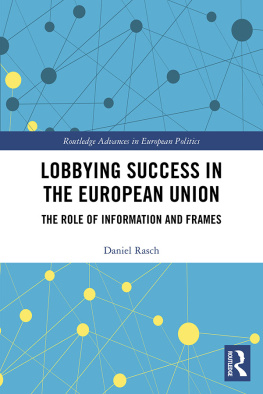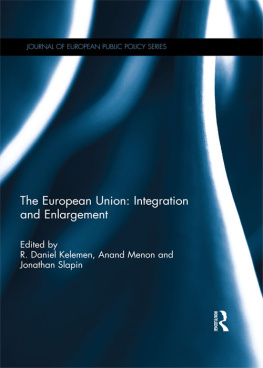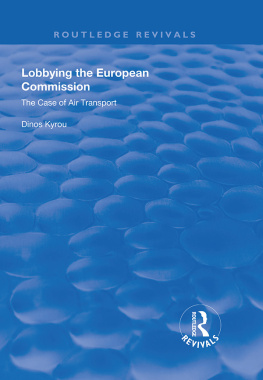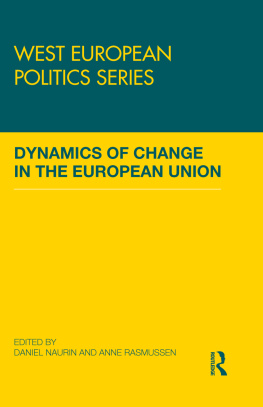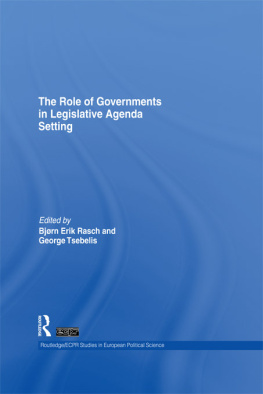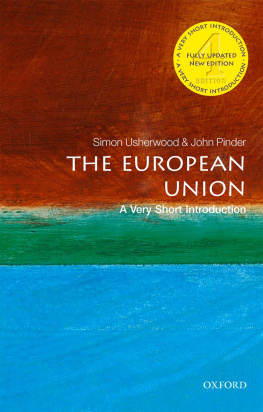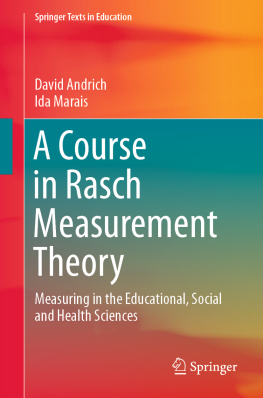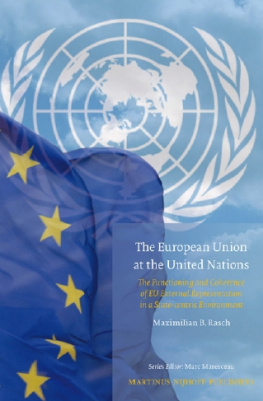Daniel Rasch has written an important book on how framing affects political advocacy in the European Union. Building on some impressive datasets, he demonstrates that organized interests significantly affect a substantial number of but not all policy outcomes. The breadth of this study, an innovative combination of qualitative and quantitative data, leads him to develop fine-grained conclusions on how policymakers differ in their receptiveness towards varying types of policy frames.
Jan Beyers, Francqui Research Professor, University of Antwerp
This book is a must-read for anyone interested in lobbying and the health of democratic processes. In both the U.S. and Europe, we know that the arguments interest groups make and the information they supply to policy makers matter, but rigorously studying this phenomenon has been very difficult. Rasch brings together an impressive amount of qualitative and quantitative data to study one of the most fundamental questions of democracy: to what extent do the voices of the people shape the laws of the land?
Christine Mahoney, Professor of Public Policy and Politics,University of Virginia
Lobbying Success in the European Union
Having information is key for most political decisions both for decision-makers and societal actors. This is especially crucial in democratic countries where external stakeholders are invited to participate in decision-making processes. Assuming that every actor that gets involved in decision-making processes has a particular lobbying goal, there is a heterogeneous set of actors competing against each other to provide information to the decision-makers. This competition leads some stakeholders to be more successful in achieving their goals than others. Frames, and the framing of information, play an important role in such lobbying success.
In this book, Daniel Rasch questions whether and, if so, how, information impacts lobbying success and shows how various actors perform in three instances of European decision-making. He does so by combining findings from a qualitative content analysis with the results of a cross-case analysis using the quantified qualitative data. The new dataset contains a representative sample of over 200 position papers from EU level and national consultations, press releases and evidence from national stakeholders in Germany, Sweden and the United Kingdom.
Lobbying Success in the European Union effectively bridges research on interest mediation and framing studies, and offers a new model for measuring stakeholders success. This new and pragmatic approach to study lobbying success using a traceable and easy to use instrument can be adapted to any policy analysis and any issue.
Daniel Rasch is a postdoctoral fellow at the German University of Administrative Sciences Speyer, Germany. He studied history, political science and social science at Ruhr-University Bochum, Germany and Stockholm University, Sweden. His research focuses on interest mediation, public policy, public administration as well as mixed methods.
Routledge Advances in European Politics
For more information about this series, please visit: www.routledge.com/Routledge-Advances-in-European-Politics/book-series/AEP
Democratic Transformations in Europe
Challenges and Opportunities
Edited by Yvette Peters and Michal Tatham
Dynamics of Political Change in Ireland
Making and Breaking a Divided Island
Edited by Niall Dochartaigh, Katy Hayward and Elizabeth Meehan
European Enlargement across Rounds and Beyond Borders
Edited by Haakon A. Ikonomou, Aurlie Andry, and Rebekka Byberg
Uncovering the Territorial Dimension of European Union Cohesion Policy
Cohesion, Development, Impact Assessment, and Cooperation
Edited by Eduardo Medeiros
The Crisis of the European Union
Challenges, Analyses, Solutions
Edited by Andreas Grimmel
Promoting National Priorities in EU Foreign Policy
Czech Republic and the EU
Tom Weiss
Italy from Crisis to Crisis
Political Economy, Security, and Society in the 21st Century
Matthew Evangelista
Lobbying Success in the European Union
The Role of Information and Frames
Daniel Rasch
First published 2018
by Routledge
711 Third Avenue, New York, NY 10017
and by Routledge
2 Park Square, Milton Park, Abingdon, Oxon, OX14 4RN
Routledge is an imprint of the Taylor & Francis Group, an informa business
2018 Taylor & Francis
The right of Daniel Rasch to be identified as author of this work has been asserted by him in accordance with sections 77 and 78 of the Copyright, Designs and Patents Act 1988.
All rights reserved. No part of this book may be reprinted or reproduced or utilised in any form or by any electronic, mechanical, or other means, now known or hereafter invented, including photocopying and recording, or in any information storage or retrieval system, without permission in writing from the publishers.
Trademark notice: Product or corporate names may be trademarks or registered trademarks, and are used only for identification and explanation without intent to infringe.
Library of Congress Cataloging-in-Publication Data
A catalog record for this title has been requested
ISBN: 978-0-8153-8101-3 (hbk)
ISBN: 978-1-351-21138-3 (ebk)
Typeset in Times New Roman
by Wearset Ltd, Boldon, Tyne and Wear
Acknowledgments
This book would have not been possible without all the many co-workers and people I met during the INTEREURO project. This was a very fruitful experience. Thanks, therefore, to the INTEREURO steering committee, Jan Beyers, Laura Chaqus, Andreas Dr, Rainer Eising, Danica Fink-Hafner, Heike Klver, David Lowery, Christine Mahoney, William Maloney and Daniel Naurin, who invested a lot of time and energy in preparing the project proposal.
The research project was funded by the European Science Foundation (10-ECRP-008) and the German project module was funded by the German Science foundation (EI 461/61).
A special thanks goes to Rainer Eising, supervisor for my doctoral thesis, for giving me the chance to work in this prosperous environment. I was able to attend several summer schools and conferences for which I am very grateful. During the project and my stay at the Ruhr-University in Bochum, I met several people who inspired, corrected and provided input throughout the different stages. They also made work more fun. Thanks to Iskander De Bruycker, Meta Novak, Florian Spohr and Patrycja Rozbicka.
I recently moved to the German University of Administrative Sciences where Stephan Grohs granted me the time and space to let this book grow. Thank you.
Last, but not least, none of this would have happened without the support and understanding of my family, especially my wife and son. I am very grateful to have them.


